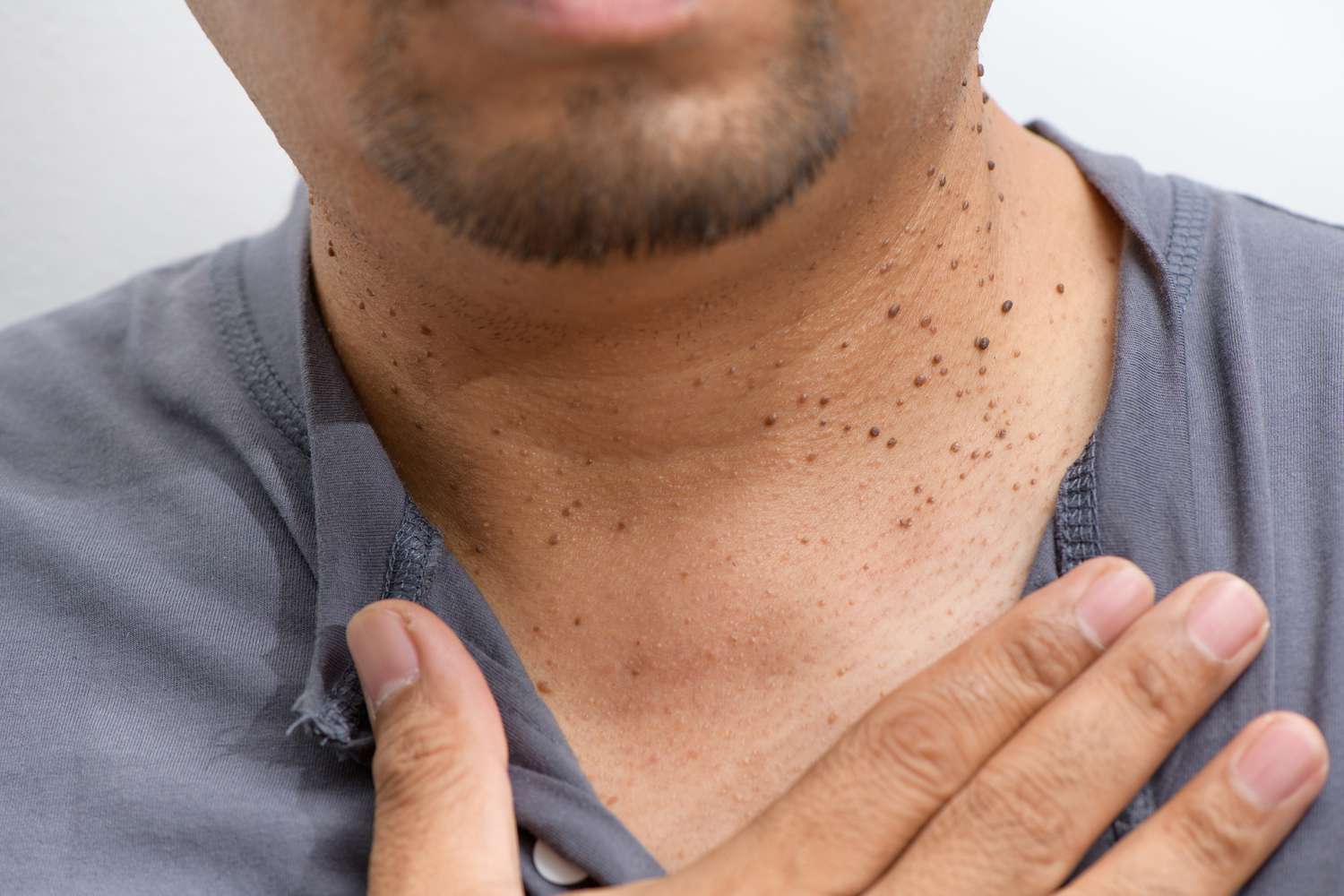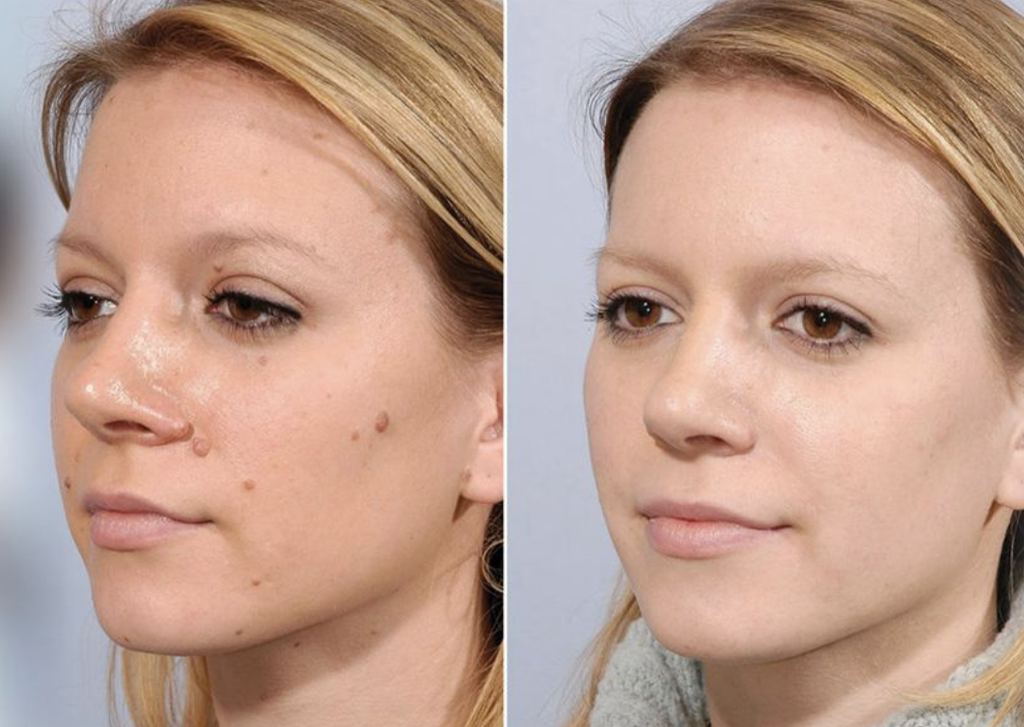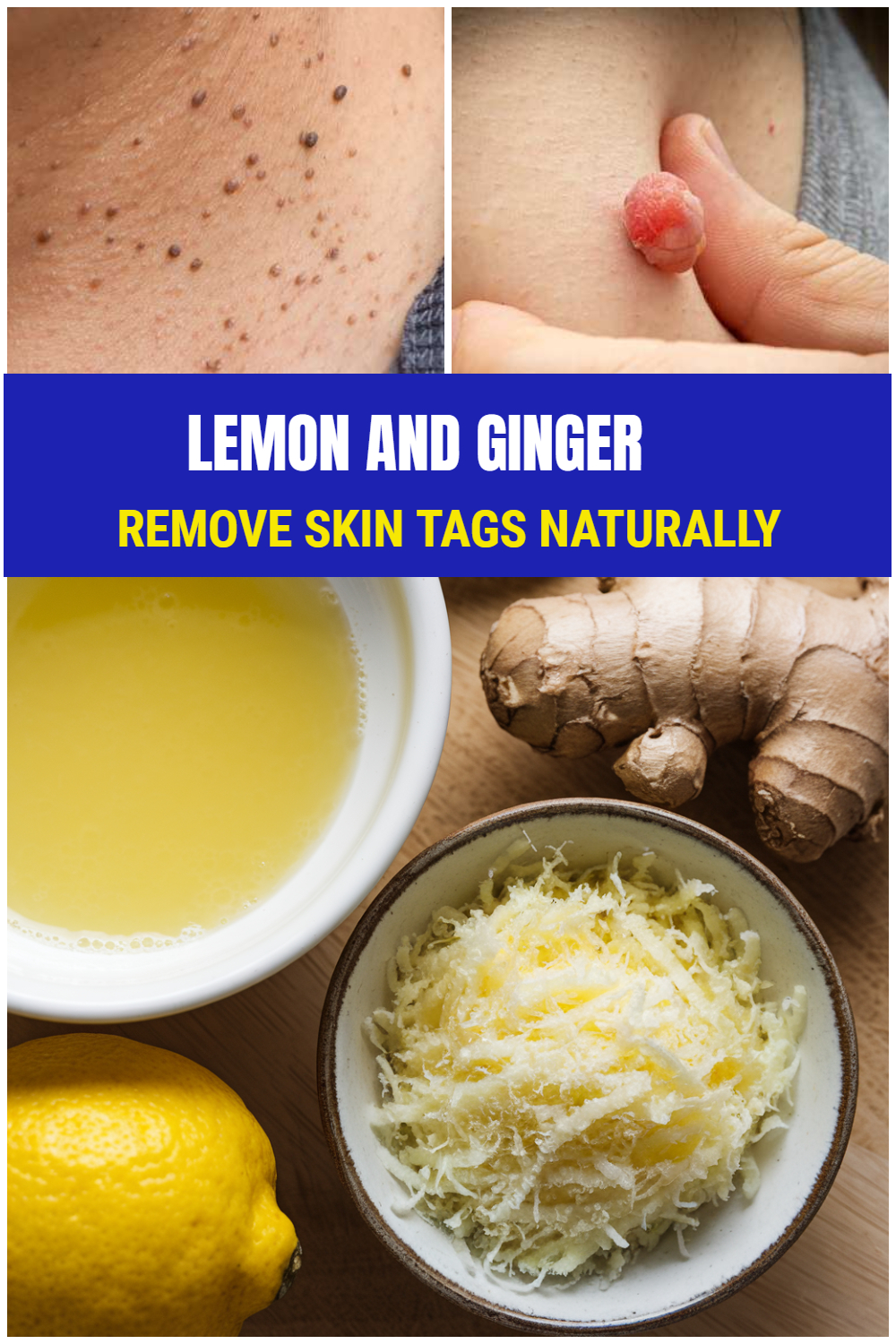Skin tags are harmless, small, flesh-colored growths that commonly appear on the neck, underarms, eyelids, groin, or under the breasts where the skin folds. While they are harmless and not cancerous, some people choose to remove skin tags for cosmetic reasons. These skin tags can sometimes be irritating if they rub against clothing or jewelry. This is annoying, isn’t it?
While dermatologists offer various medical removal methods (freezing, burning, or cutting), natural remedies, like lemon and ginger, offer a low-cost and gentle alternative.
How Lemon and Ginger Work for Skin Tags
Both gingers and lemons are widely known for their antibacterial and antifungal properties, which may help keep the surrounding skin clean and prevent infections.

1. Drying Out Skin Tags with Citric Acid
Lemon juice has citric acid, which has exfoliating properties and may help dry out skin tags over time. With consistent use, this drying effect can cause the skin tags to shrink off, wither, and eventually fall off. Additionally, citric acid has natural exfoliating properties that aid in removing dead skin cells, supporting the gradual disappearance of skin tags.
2. Antiseptic and Antibacterial Properties
Lemon juice is also rich in antiseptic and antibacterial properties that may help keep the affected area clean and reduce the risk of infection. This is particularly important for those who choose to remove skin tags at home.

3. Anti-Inflammatory Benefits of Ginger in Soothing Irritated Skin and Reducing Redness
Ginger is an excellent source of anti-inflammatory and antioxidant properties, especially gingerol. This compound may help soothe irritated skin and reduce redness, which may occur as the tag shrinks and falls off. This could make the removal process more comfortable and support healing afterward.
4. Promoting Skin Healing and Preventing Scarring
The antioxidants in gingers may support the healing process once the skin tag falls off. By improving blood circulation and oxygen delivery to the skin, these antioxidants can help accelerate tissue repair and reduce the risk of scarring.

5. Natural and Safe Alternative to Chemical Treatments
Unlike medical treatments that may contain harsh chemicals, lemon and ginger are a natural and generally safe alternative for most skin types. This makes them a preferred choice for those looking for non-invasive methods for skin tag removal.
6. Reducing the Risk of Infection
The antibacterial effects of lemon juice may protect the skin from harmful bacteria, lowering the chance of infections when removing skin tags naturally.
7. Calming Irritation After Skin Tags Fall Off
The antiseptic properties of lemon juice may help protect the skin by preventing infection throughout the removal process. Applying ginger juice or extract once the skin tag falls off may help soothe irritation, reduce redness, and prevent prolonged discomfort.
8. Supporting Overall Skin Health
Lemon and gingers are loaded with antibacterial and antifungal properties, which promote cleaner, healthier skin and potentially reduce the formation of new skin tags. Their rich antioxidants help protect skin cells from damage caused by free radicals, supporting overall skin health.
How To Remove Skin Tags with Lemon and Ginger?
Ingredients
- 1 fresh lemon
- 1 small piece of fresh ginger
Instructions
-
- Squeeze the lemon juice into a small bowl. Grate the ginger and extract its juice, using a fine cloth or strainer.
- Mix lemon and ginger juice until well blended
- Dip a cotton swab into the mixture and apply directly to the skin tag
- Leave it on to allow the solution to dry naturally. Avoid touching the area until fully absorbed
- Repeat using the remedy 2–3 times daily for 1–2 weeks until the skin tag shrinks and falls off

Cautions and Precautions
Always conduct a patch test before applying lemon or ginger to larger areas of skin, as they may cause irritation, especially for sensitive individuals.
As lemon juice can be irritating, avoid applying the ginger and lemon mixture near sensitive areas like the eyes, mouth, or genitals.
Discontinue use if you experience redness, burning, or irritation. Some individuals may have sensitivity to lemon or ginger.
If the skin tag becomes inflamed, infected, or does not respond to this remedy, consult a dermatologist.
Disclaimer
This article is for informational purposes only and should not be considered medical advice.
Always consult a healthcare provider or dermatologist before using a new natural remedy, especially if you have pre-existing skin conditions or sensitive skin.








